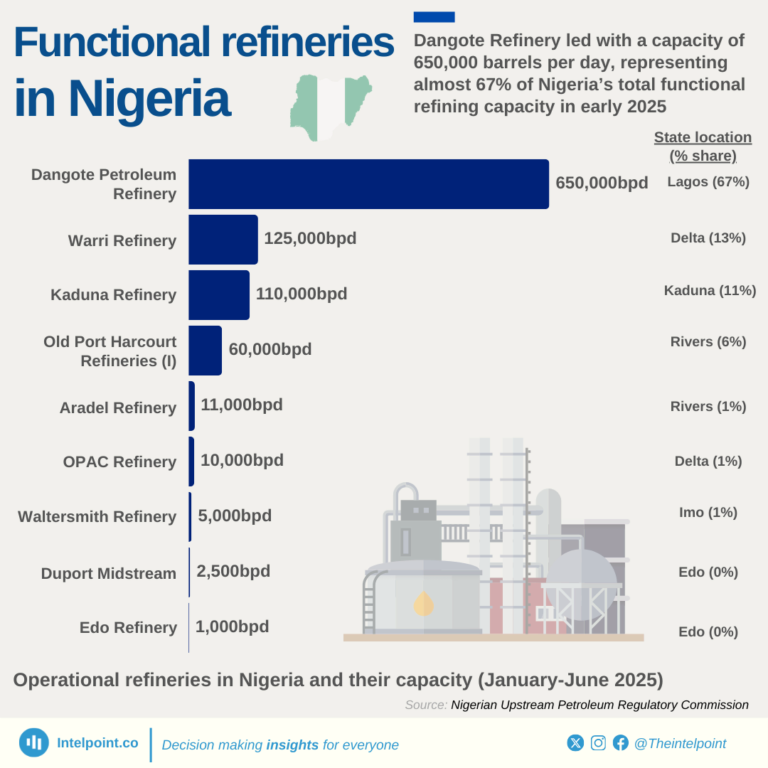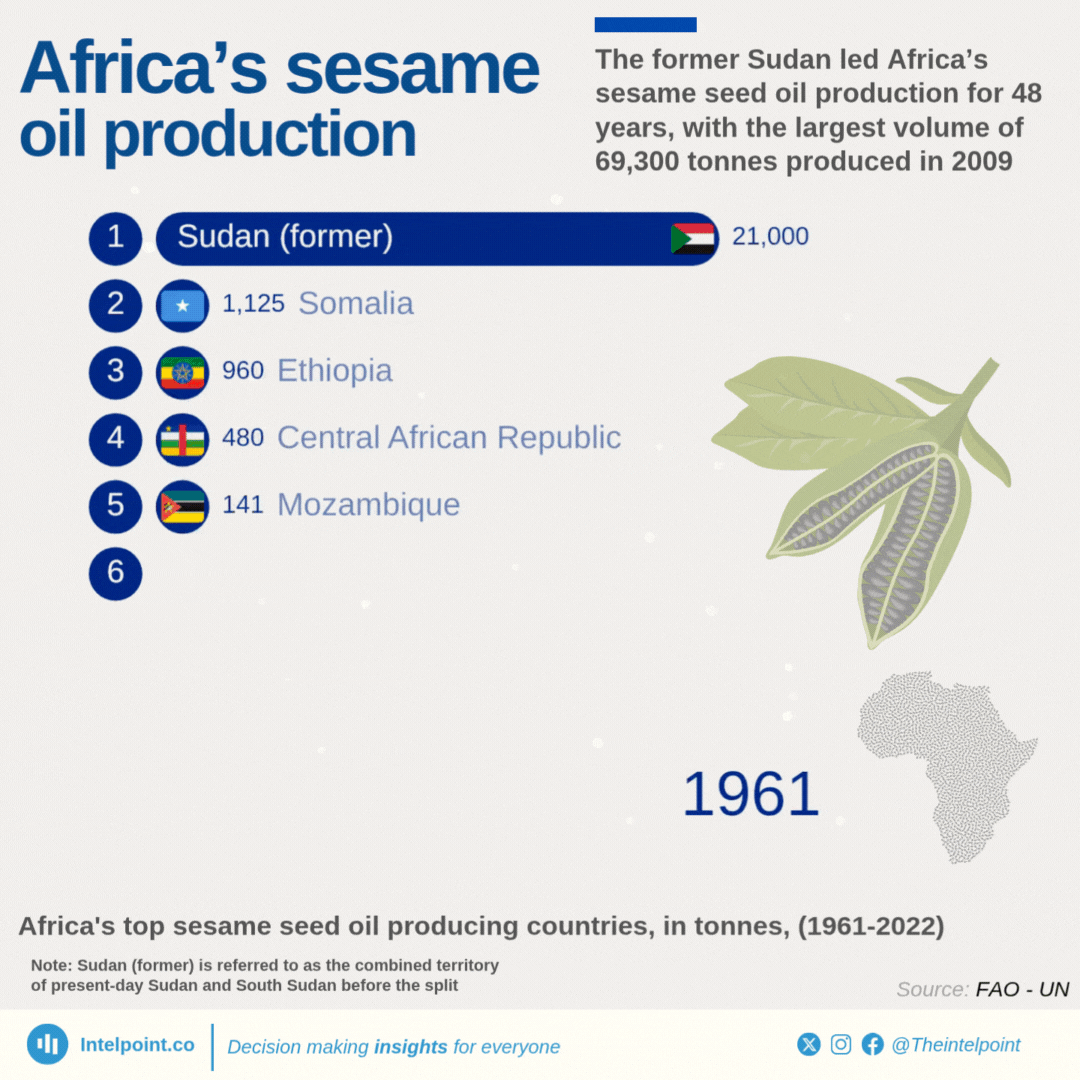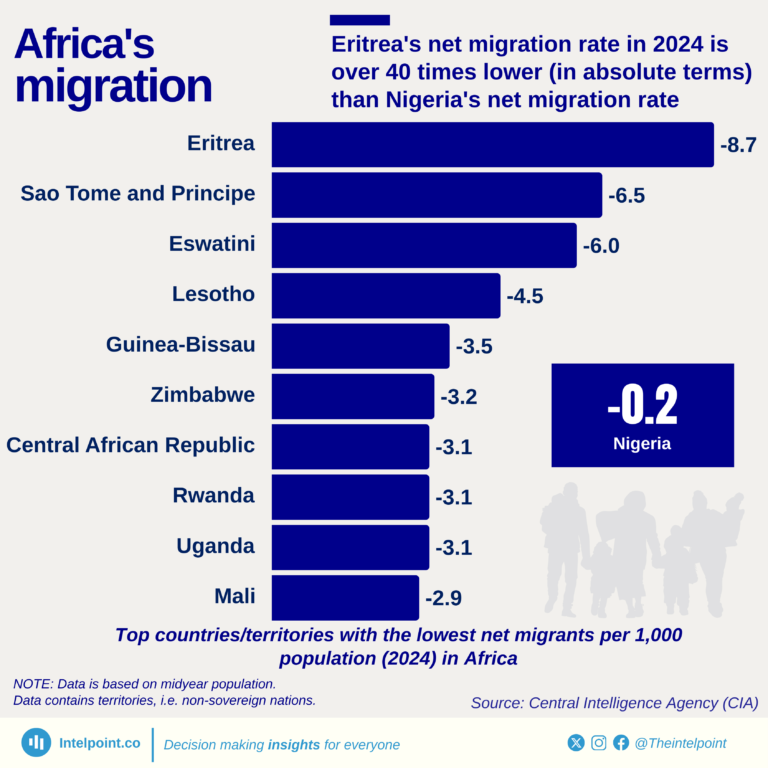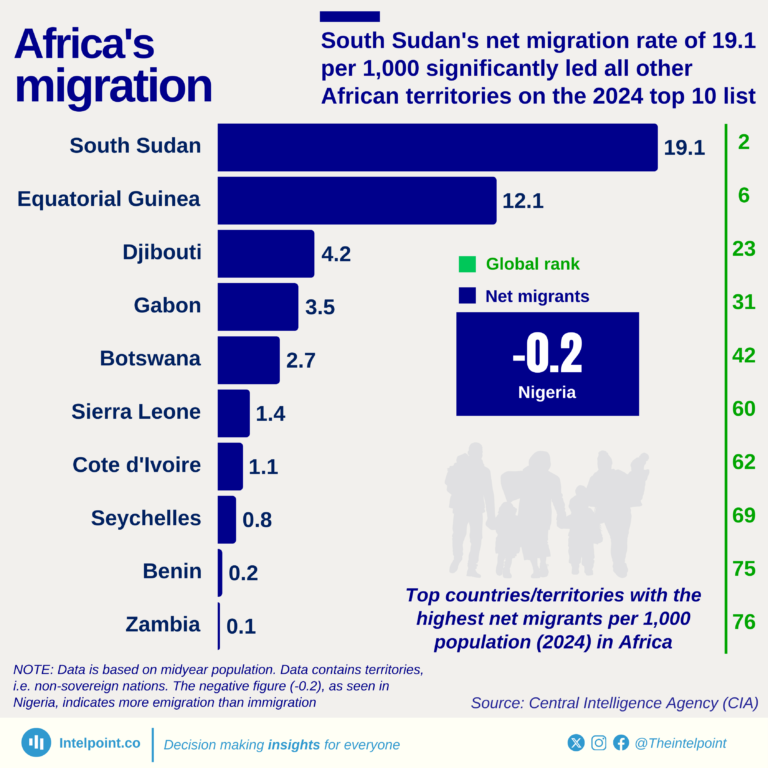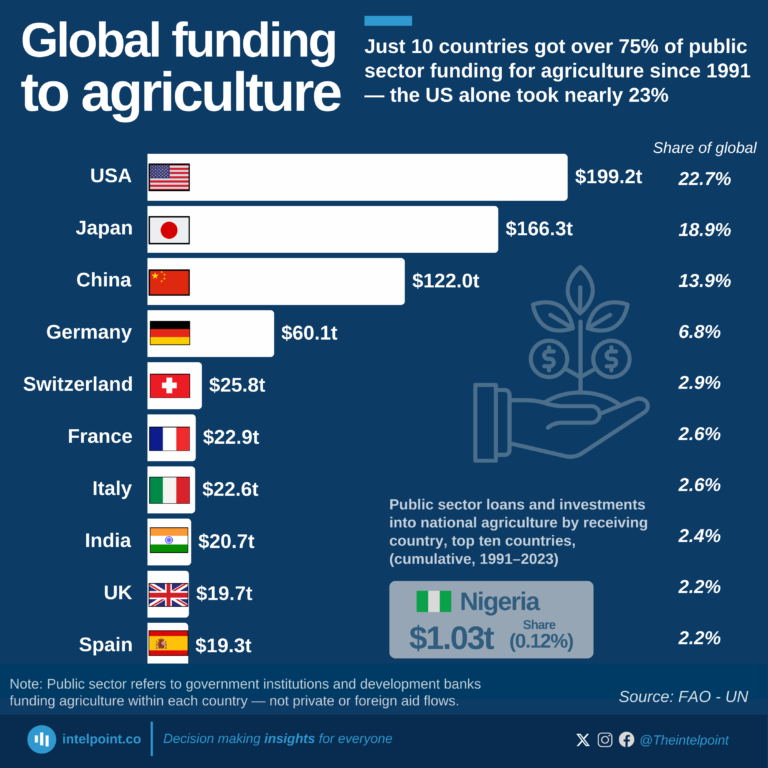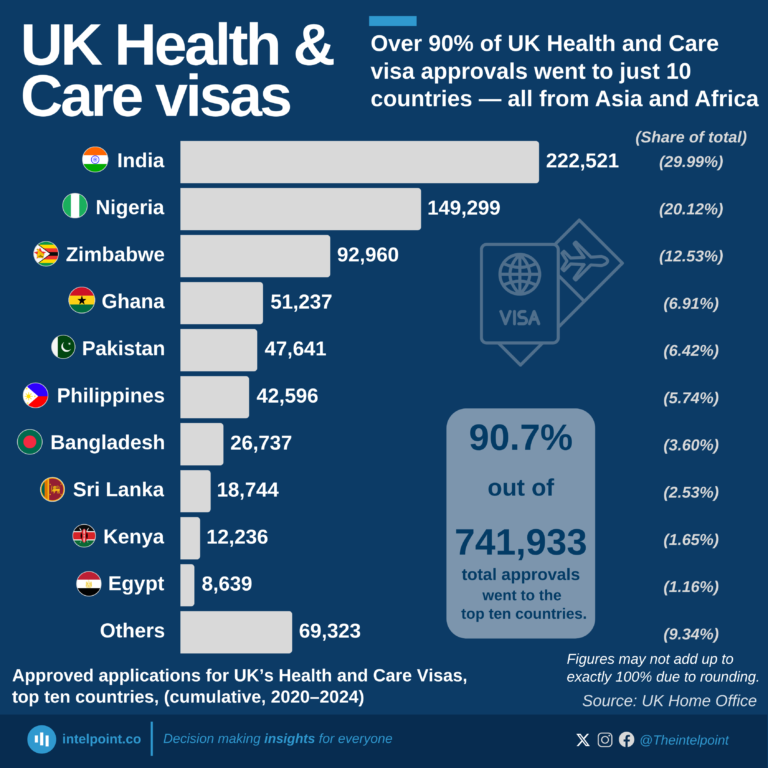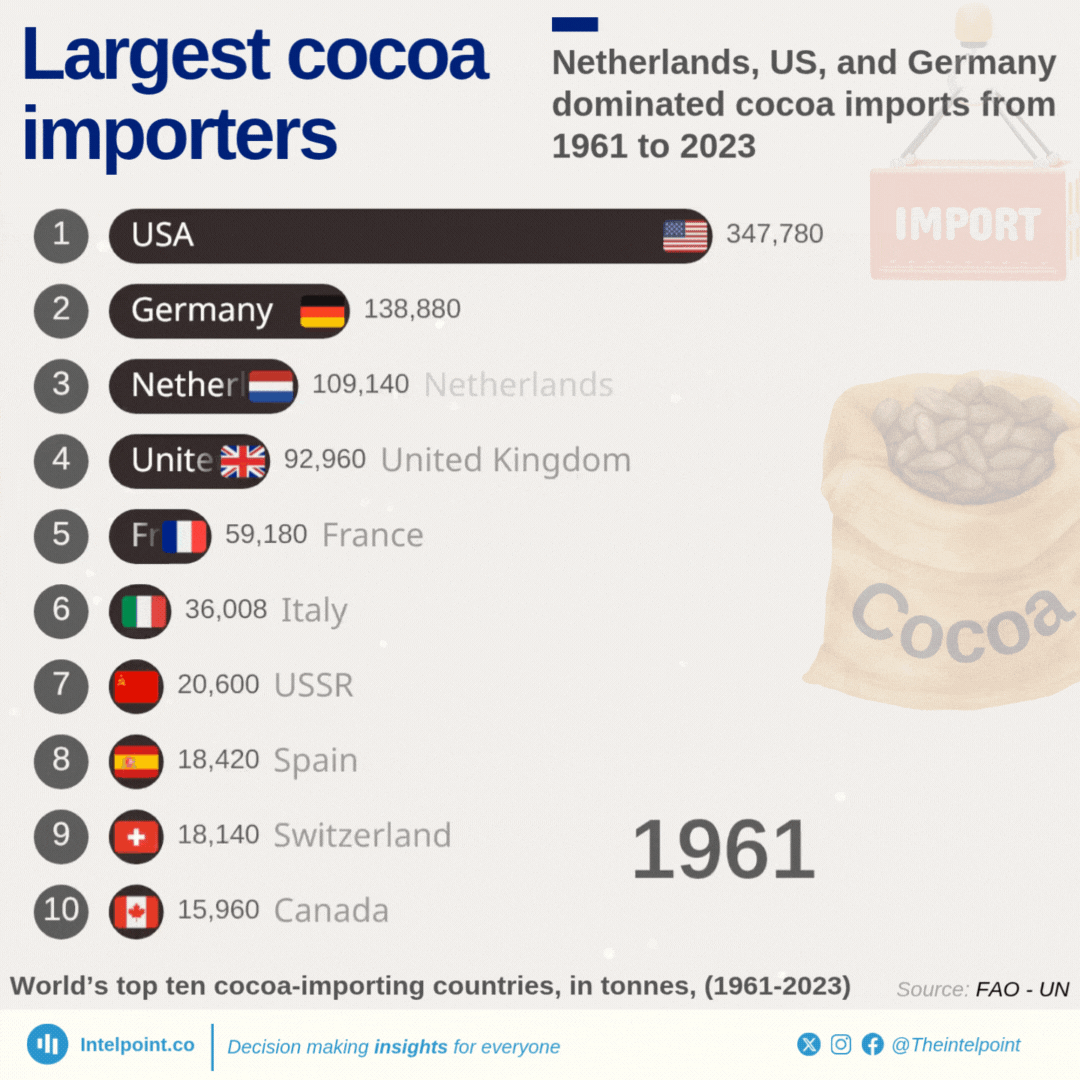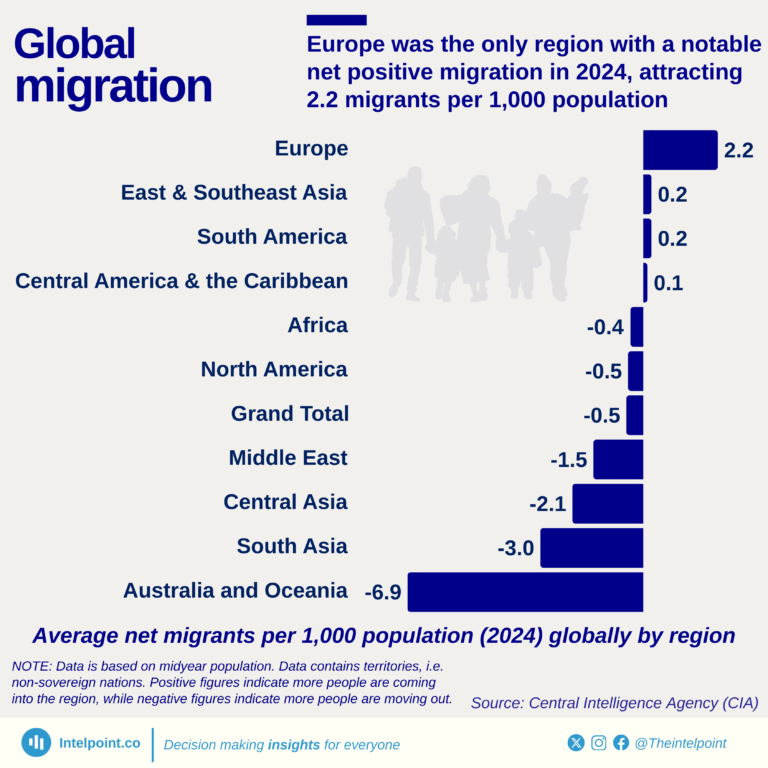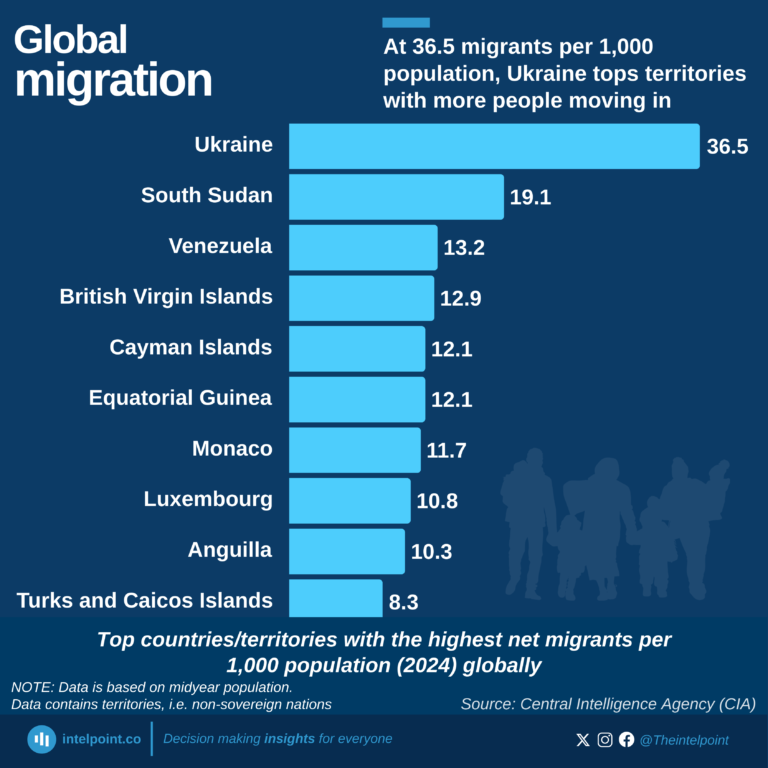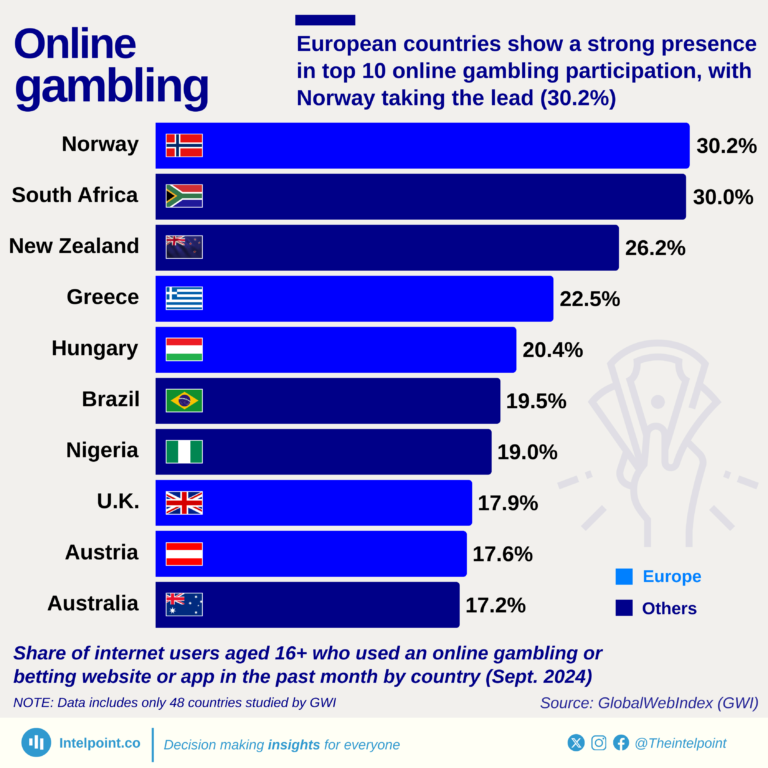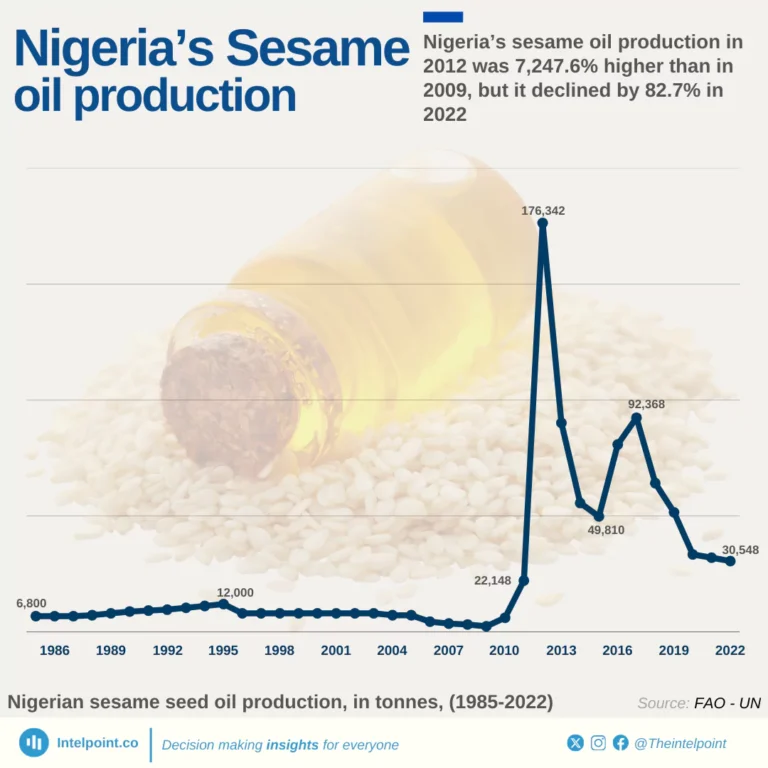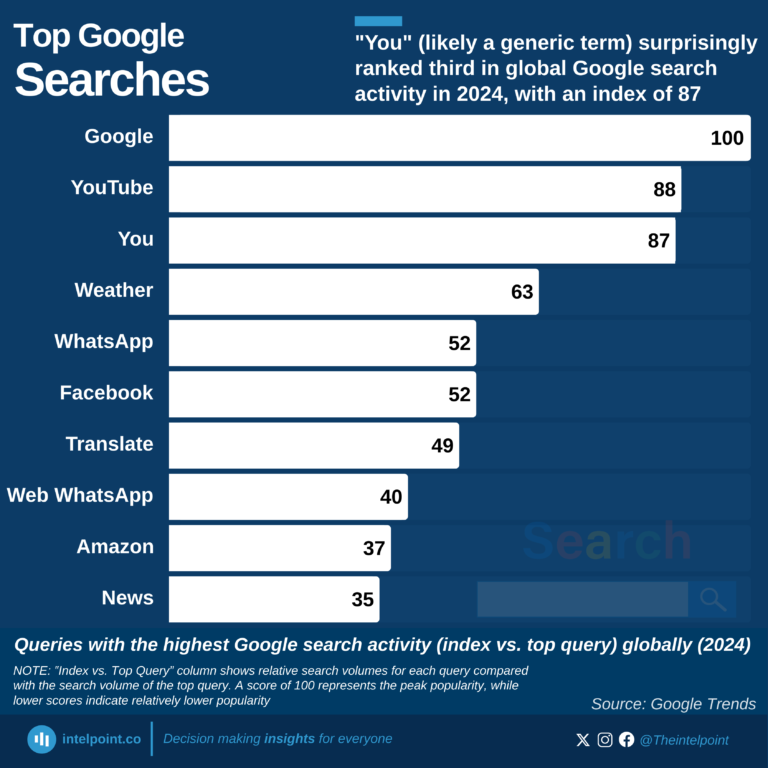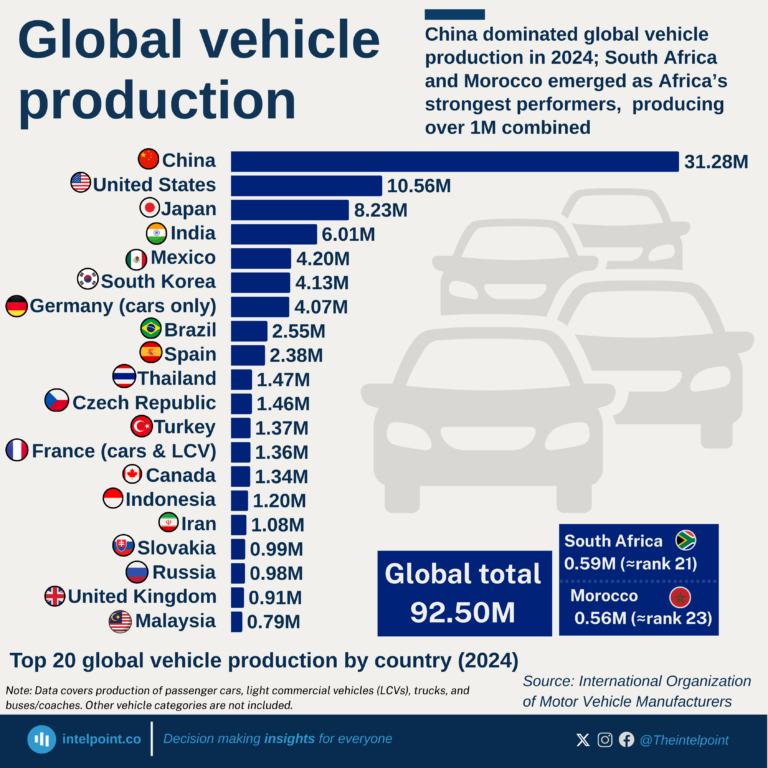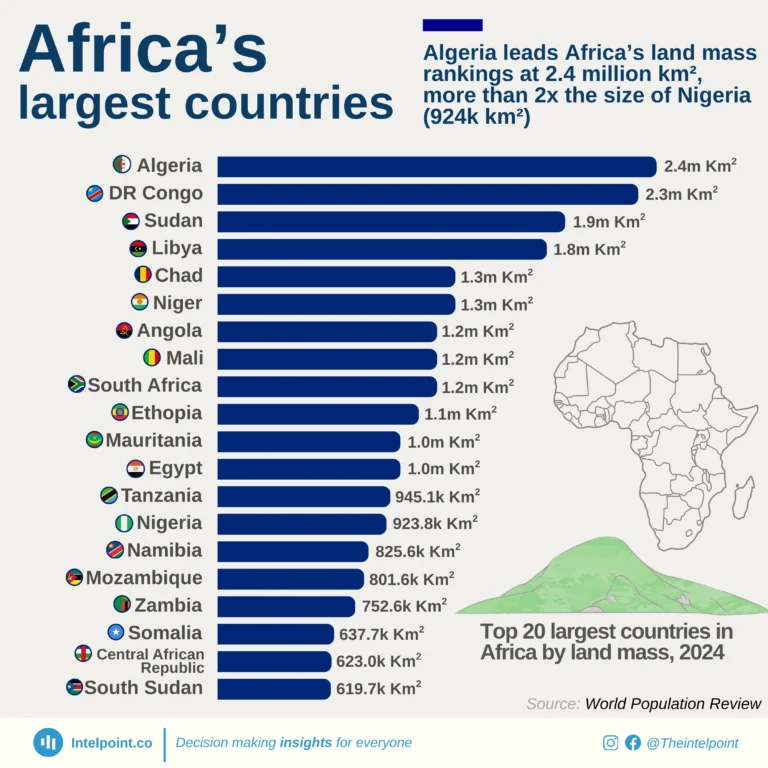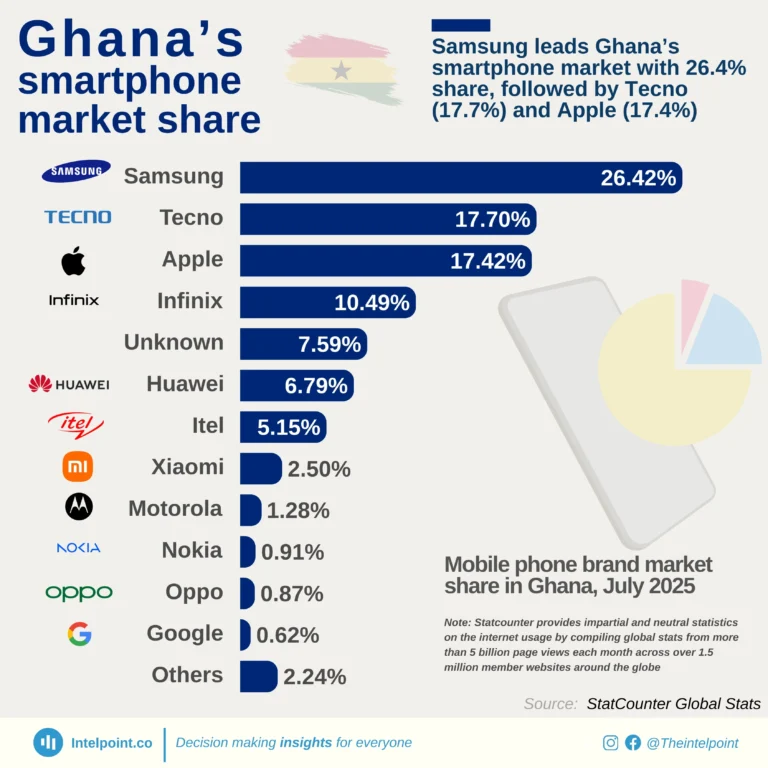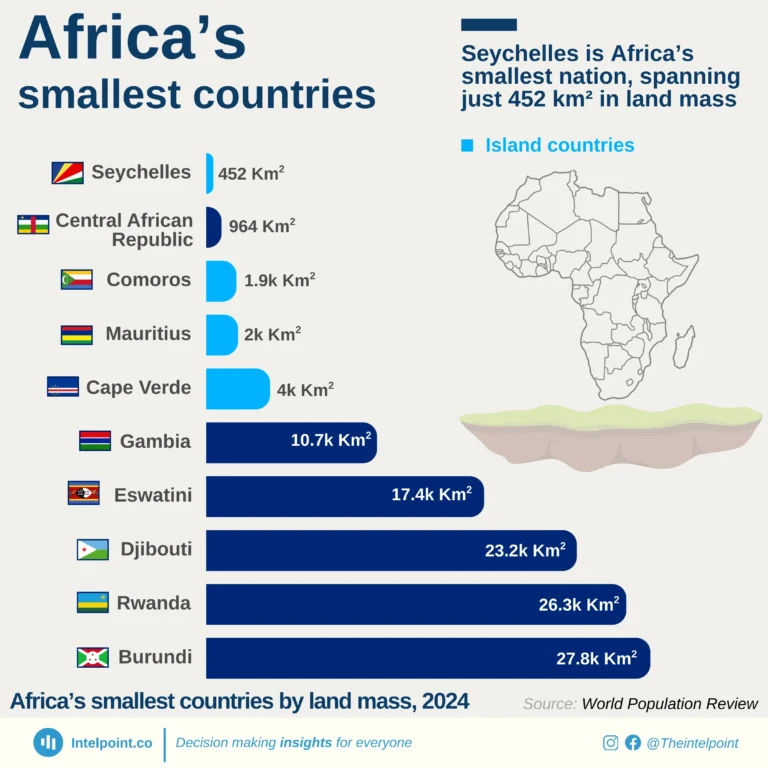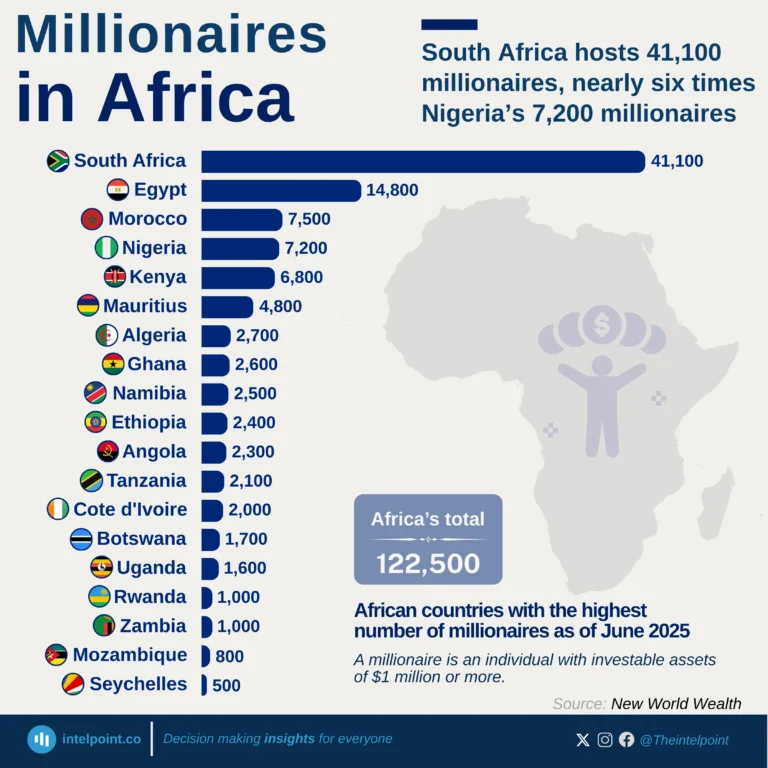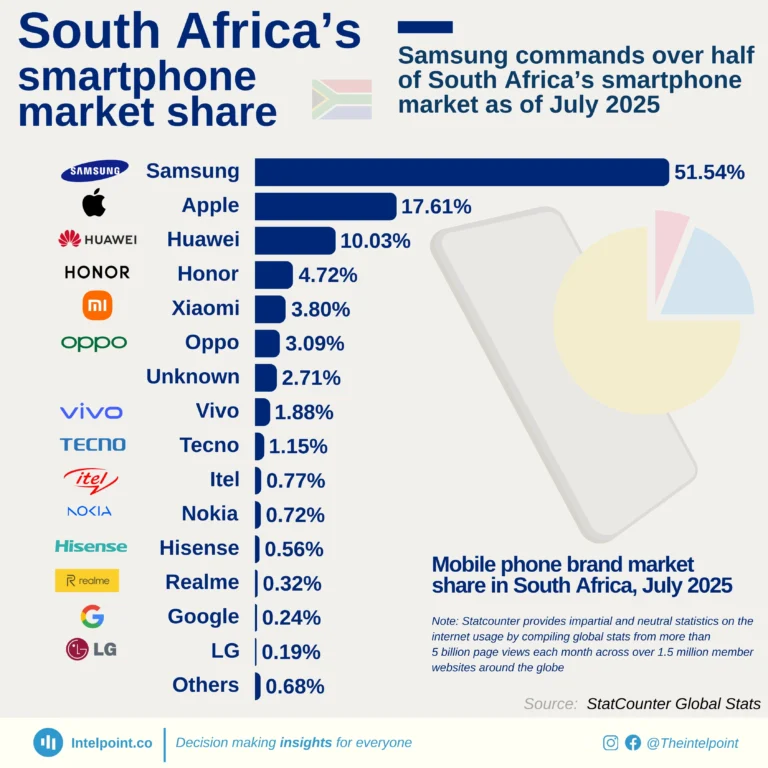Seychelles has the most powerful passport in Africa in 2023, with visa-free access to 155 countries and territories, followed by Mauritius (148). Nigerian passport holders have visa-free access to 46 countries, one of the lowest in Africa. Africa's most powerful passports in 2023 by the number of travel destinations passport holders can travel to visa-free:
Seychelles (155), Mauritius (148), South Africa (106), Botswana (89), Namibia (81), Lesotho (79), Eswatini (77), Kenya (76), Malawi (75), Tanzania (73).
Africa's least powerful passports in 2023 by the number of travel destinations passport holders can travel to visa-free:
Liberia (51), Djibouti (49), Ethiopia (47), Nigeria (46), South Sudan (46), DR Congo (45), Eritrea (44), Sudan (44), Libya (41), Somalia (35).
